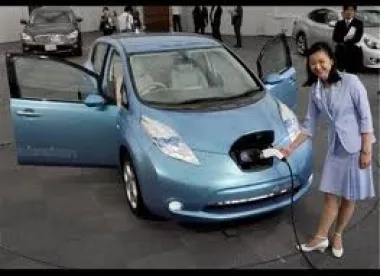Kaneka Corp. v. Xiamen Kingdomway Grp.; TomTom, Inc. v. Adolph
Addressing issues of claim construction, the U.S. Court of Appeals for the Federal Circuit recently reversed the decisions of two district courts, shedding some light on the impact of the Teva decision on its claim construction review process. Kaneka Corp. v. Xiamen Kingdomway Grp. Co., Case Nos. 14-1373 and -1399 (Fed. Cir., June 10, 2015) (Reyna, J.); TomTom, Inc. v. Adolph, Case No. 14-1699 (Fed. Cir., June 19, 2015) (Wallach, J.).
In the first case, Kaneka sued Xiamen for infringement of a patent directed to producing oxidized and reduced coenzyme Q10, which is used in dietary supplements. Shortly thereafter, Kaneka filed a 337 Petition in the U.S. International Trade Commission. The district court stayed the lawsuit pending resolution of the Commission proceeding. The Commission issued a decision finding no infringement by any of the respondents. After lifting the stay, the district court construed the asserted claims and granted summary judgment of non-infringement. Kaneka appealed, challenging the district court’s claim construction.
Addressing the standard for review, the Federal Circuit stated it reviews the district court claim construction rulings “de novo except for subsidiary facts that are based on the extrinsic record, which [are reviewed] for clear error.” For all of the terms at issue, the Court relied heavily on the intrinsic evidence, explaining that “[e]xtrinsic evidence, such as dictionary definitions, for example, may be useful when construing claim terms, so long as the dictionary definition does not contradict any definition found in or ascertained by a reading of the patent documents.” In this case, the Federal Circuit declined to rely on extrinsic evidence, finding that the appropriate meaning of claim terms could be ascertained from the intrinsic evidence. In this regard, the Court further explained that “word-for-word alignment of disclosed embodiments [. . .] with claim language is unnecessary when the meaning of a claim term can be ascertained from the intrinsic record.”
Just nine days later, in TomTom, the Federal Circuit issued another opinion reversing a district court’s claim construction, again applying ade novo standard of review. The TomTom case involves allegations of infringement of a patent directed to generating and updating data for use in a destination tracking system. In its claim construction order, the district court construed all four disputed terms in favor of the plaintiff. Based on the claim constructions, TomTom moved for summary judgment and the defendant moved for reconsideration of the claim construction. The court denied the defendant’s motion and issued an opinion in favor or TomTom, consistent with its previous claim construction order. At the parties’ request, the district court entered a judgment of non-infringement, and Adolph appealed.
Although the Federal Circuit addressed all four disputed limitations on appeal, one limitation is of particular interest. For the term “destination tracking system of at least one mobile unit” the Court reversed the district court conclusion that the patentee disclaimed certain claim scope during prosecution. TomTom asked the Federal Circuit to give deference to the lower court’s fact-findings regarding the specification and file history, but the Court declined, explaining that the prosecution history is part of the intrinsic evidence and should be reviewed de novo. For other claim terms, the Federal Circuit clarified that claim terms should generally be given their plain and ordinary meanings, unless the patent drafter acted as his or her own lexicographer, or there was a disavowal of claim scope. Having found evidence of neither in the record, the Federal Circuit reversed the district court.
Practice Note: For other post-Teva claim construction cases where the appropriate standard of review was discussed, see Lighting Ballast Control and Teva Pharmaceuticals (remand) cases.




 />i
/>i
